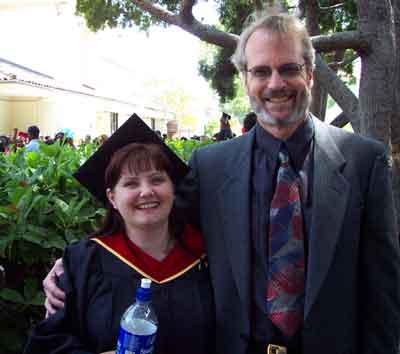My colleague, who teaches at a private ESL school with small classes and close connections to her students, recently shared a story with me. A group of students were playing in the park and had a minor injury. Afraid to go to the ER, they called her. She drove to meet them, assessed the situation, helped them resolve the issue, and even fed them all lunch. She spent several hours doing this. I was stunned. Why, I asked her, would you get that involved? The asked me, she said. They told her they had no one else to call. She didn’t volunteer, but what could she do once they asked for help?
I myself had the opportunity for out-of-class conversations for non-academic help with several of my own students this week, 7 to be exact. It apparently was a tough week in the student world. While I didn’t drive across town and feed anyone, I did give extra time and energy. I invested a bit more into their lives than I usually do. Why did I do that I ask myself? They asked me. Honestly, I was glad to provide assistance. In fact, it is those kinds of exchanges that make the tediousness of grading endless grammar errors worth it. Nonetheless, I certainly couldn’t give so much to every single student who crosses my path.
What then is the answer?
At College, there are a plethora of student resources. There are student services, which provide a multitude of resources, student clubs, which offer common interest and companionship, and even full-time faculty, who have paid office hours. Nonetheless, so many ESL students seem to be floundering in school.
One reason I believe this to be so it that they don’t know how, in the USA, to develop solid support systems. They don’t have a safety net.
This week’s blog offers a bit of advice for creating one’s own safety net.
![]()
Use Campus Resources

Investigate the available resources before a crisis. If you are attending an American college, there are resources on your campus for you. Every school has different availability. Some have Women’s centers; others centers for Veterans. Every school has a health center with physical and mental health resources. Most have academic support. Find out what your school has.
Go to your college web page. There will be a tab for students or current students. Go to that page. There will be a list of student services. Some colleges call it Campus Life or Student Life while others use the phrase Student Services or Student Resources.
Look up the ones that apply to you. Find out what the requirements, if any, are. Find out where it is located on campus. Put the phone number or email address in your phone. Stop by next time you are on campus, so you know where it is. Do this BEFORE you have a problem. Take advantage of all the things your campus provides.
![]()
Know Your Faculty


If there are no office hours, you can still discover their availability.
- Find out if they like to communicate by email. Do they elicit or encourage questions through email? Even more importantly, do they answer the emails you send? How can you find out? Check the syllabus or send a test email and see what happens. If they do encourage email, then communicate with them that way.
- Find out if they are willing to talk before or after class. Some are, and some aren’t. How do you know? Come early and try to talk to them. Do they seem open or irritated? I’m always willing to talk before class, but I prefer if students want a real conversation as opposed to a quick question, that they let me know in advance, so I’m not trying to do last minute prep when they want to talk. How would my students know this? I tell them explicitly, but most instructors do not. How can you find out? Talk to them and see what happens.
- Find out if they are willing to talk during a break. Some instructors use break time to touch base with students. I don’t. I need a few minutes of my own during class. How do my students know this? I tell them explicitly. Most instructors don’t. How can you find out then? Either watch to see what the Prof does during a break or give the conversation a try. If the Prof doesn’t seem to want to be disturbed, now you know.
Every instructor is different. While you can have the confidence that every instructor at your college has the academic wherewithal to teach the subject, that does not guarantee that each instructor will feel the same about your or you about them. Before you go to ask an instructor for extra advice or time, it helps to have established some kind of relationship with them. As a college student myself, I never had any problem getting advice from my Profs. Why? Was it because I was a great student? Not really. I mean, yeah, I did well in school, but lots of people did that. So why? Why were some instructors willing to share their experiences and expertise with me?
First and foremost, I spent time with them during office hours. When I was a student, unlike today, most of my faculty were full-time and so had office hours. I was there whether it was a convenient time for me or not. If I liked a Prof or thought he or she was one I wanted to learn from, I would go to their office hours. I would ask questions about the material. I would talk about the class. If they were busy, I’d come back another time. I was a regular in their world. They got to know me not just as a student in their classes, but as a person as well. At the end of the semester, I would write a thank- you card.
Then, when I did have the invariable problem in that class or another, I could confidently go back and approach the Prof. They knew me. I knew them. I knew that Dr. Wallach would talk to me about my teaching goals and Dr. Wheeler would recommend good reads. I knew Dr. Hertz would offer out-of-the-box solutions, and Dr. Finney would listen to endless complicated grammar questions. No one Professor, no matter how dedicated, can be all things to all people. Find out who they are and what they can be for you. Let them get to know you too.
Today it is different, especially at Community College but at University as well. 85% of college faculty today is adjunct part-time faculty. This means it is harder for you the student to spend time with faculty outside of class, especially if there are no office hours.
How then can you make those connections with your faculty?
First, you must know if they are full or part-time and you must know if they have office hours. If they do, go. If they don’t, it’s harder but doable.
- Find out if they are willing to talk after class. Some are, and some aren’t. How do you know? Initiate a conversation. If they talk to you, great; if they say they have to leave, then you know. I am always available for my students after class. How do they know? I tell them explicitly. Most instructors don’t.
- Find out if they are willing to make an appointment with you at some other time. How do you know? Ask. If you take this route, you are the one who has to be flexible. My schedule on campus is very limited, so while I am absolutely willing to talk with students, they have to work with my schedule. Part-time faculty members are usually teaching at multiple schools, so if you want to connect, you have to be flexible.
While true friendship between students and faculty is rare, communication, sharing, and compassion is quite common. The student is the one that has to reach out to Instructors though. They are available for all, but not all want or need the same things from every Instructor.
![]()
Cast a Wide Support Net

Many students from other cultures struggle with making friends in America. “American are shallow and selfish,” they tell me. Maybe. But it is more likely that they are busy. We are all so busy today. Going to school, working, spending hours in traffic, taking care of kids, protesting bad government decisions, trying to get enough sleep—there just don’t seem to be enough hours in the day. Friendships do not function the same way here in the USA as they do in other countries. This is a fact. That doesn’t mean, however, that friendship support is not a vital, integral part of American culture. It just may be different from what you are familiar with.
For most people here, friendship is based on accessibility and connection. People in your class, your club, your church, your job, these are the ones that become friends. Thus, if you want more friends, you have to have more points of interaction with people.
Rarely here can you expect one person to meet all your emotional and companionship needs unless it’s your husband, wife, or partner, and then there’s still no guarantee.
What I have personally found effective for my own busy stressed out life is to have a wide-base of friends. I have friends with whom I only talk about teaching, others with whom I only talk about writing, and others with whom I only talk about family. When I was a student, I had friends from my Honors Society, friends from my International Friends Club, friends from Beach Clean-up, and so on. Now, as a busy professional, I have various problems, as do we all. I can’t expect any one of my friends to help me with every problem. Different friends in my life fulfill different needs. That’s how I manage.
If you are lucky to have a one-person BFF that can be there you for everything you need, great for you!
Most of us need a wide net.
![]()
Appreciate Your Family

Even if your family is not here with you, they care about you like no one else. Keep in communication with them. I’ve lost so many of my beloved family members that I appreciate all the more the ones I still have. I am lucky to have two Dads, the Hunter and the Pirate and I call each of them every week. The Pirate’s call is Tuesday, Hunter’s call Thursday. We talk as I drive home an hour and a half from work. They listen to all my teaching angst and book problems and whatever else I want to share. I am also fortunate to have a wonderful husband. Now, he does not want to hear about every minute of my teaching day nor does he want to hear about all my student problems’ I obsess over. Nonetheless, he is there for me if I need him.
You have a family. Call them. Text them. Facebook them. Stay in touch in whatever manner you can. Even if they don’t have any answers, they do have love to share.
Life isn’t easy; I’m not sure it is supposed to be. Maintaining connections isn’t easy either. Yet with some planning and effort, you can create a safety net to catch you when you fall. The more people to hold that net, the more secure it will be. Develop a support system to share and cheer you on.

